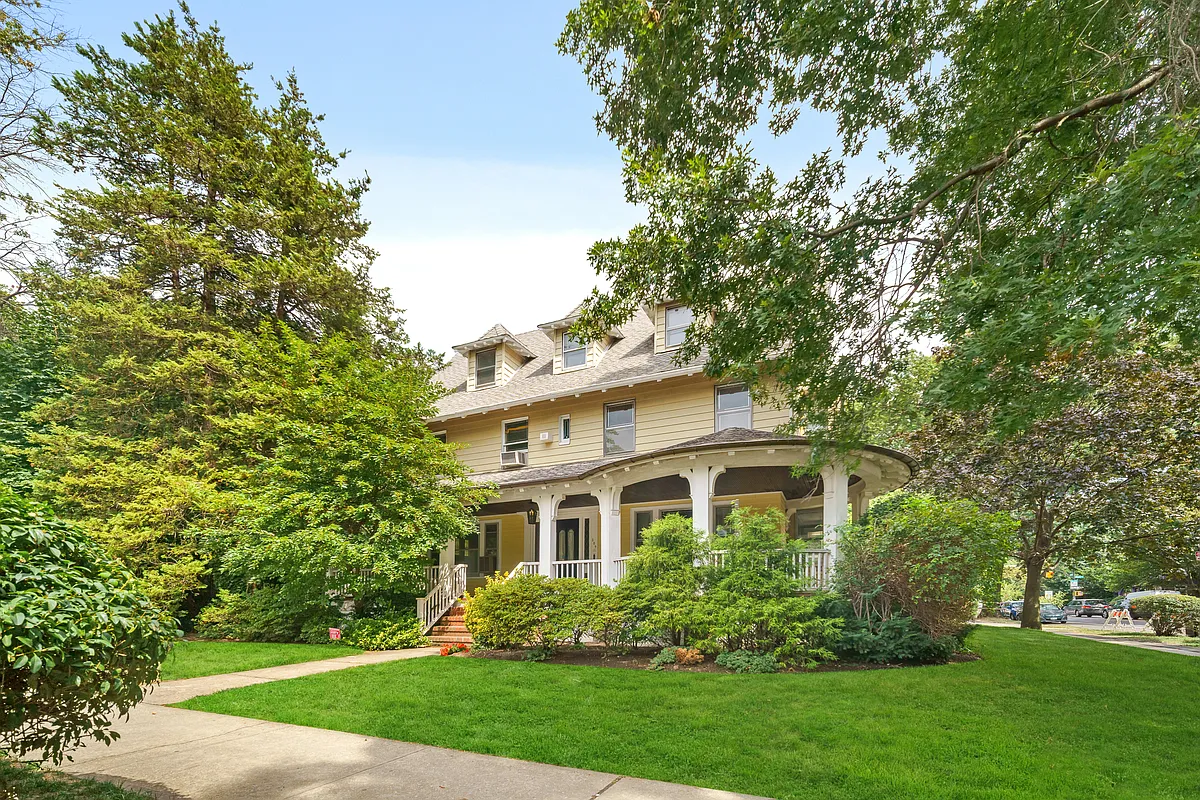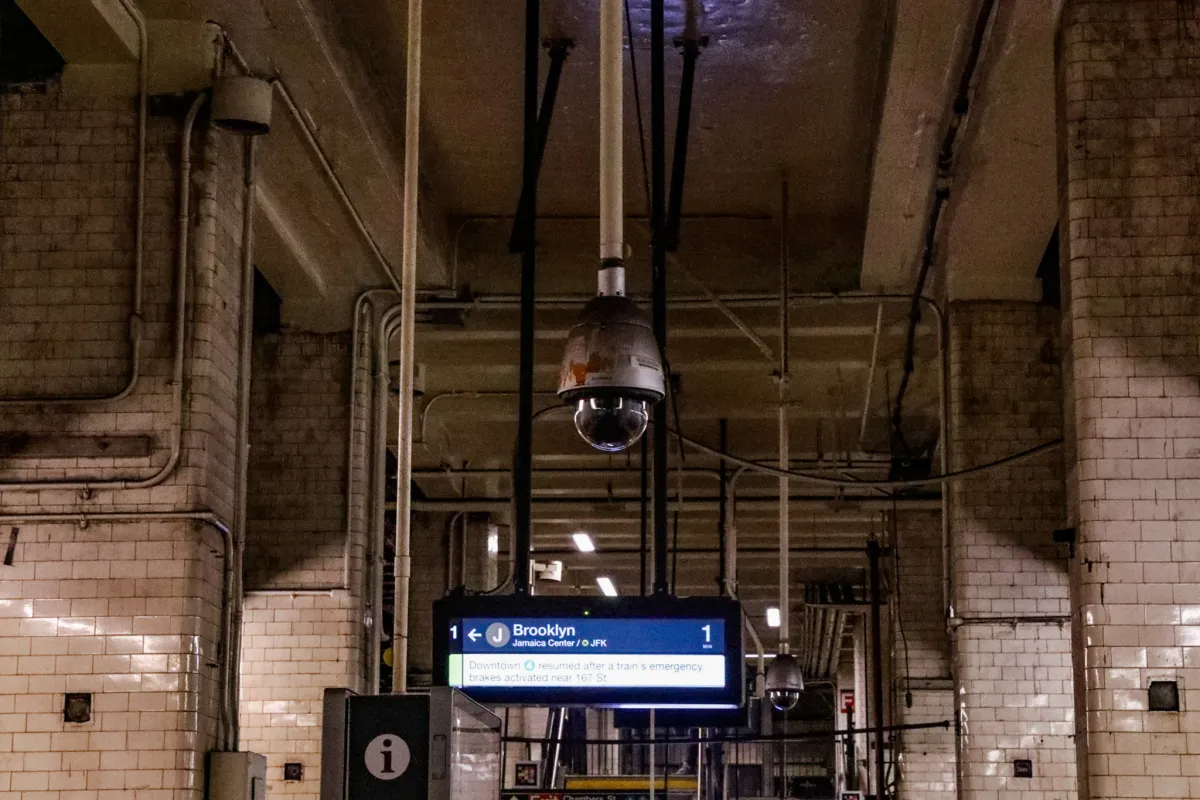'What's Wrong With Gentrification?' Asks New York Mag
This week New York Magazine takes a view on gentrification that is, if not contrarian, at least a little controversial. (The article follows a similar one in the semi-annual magazine n+1). As will come as no surprise to most readers, gentrification these days is treated as something of a dirty word. Why’s that? Mostly because…

 This week New York Magazine takes a view on gentrification that is, if not contrarian, at least a little controversial. (The article follows a similar one in the semi-annual magazine n+1). As will come as no surprise to most readers, gentrification these days is treated as something of a dirty word. Why’s that? Mostly because it conjures up associations of, as n+1 wrote, “the forced displacement of the urban working class by mobile, college-educated professionals.” This may be more myth that fact though: In his recent book There Goes the ‘Hood, Columbia urban planning prof Lance Freeman found that poor residents and those without a college education were actually less likely to move if they resided in gentrifying neighborhoods” and that “the discourse on gentrification has tended to overlook the possibility that some of the neighborhood changes associated with gentrification might be appreciated by the prior residents. In other words, the rehabilitation of an old house or the opening of an upscale bakery isn’t necessarily a zero-sum game in which the long-time residents are lose out. Not only that, claims the New York Magazine article, but gentrification is the only hope that many urban centers have of saving themselves: “The ailing cities that save themselves in the 21st century will do so by following Brooklyn’s blueprint,” the article says in closing. “They’ll gentrify as fast as they can.”
This week New York Magazine takes a view on gentrification that is, if not contrarian, at least a little controversial. (The article follows a similar one in the semi-annual magazine n+1). As will come as no surprise to most readers, gentrification these days is treated as something of a dirty word. Why’s that? Mostly because it conjures up associations of, as n+1 wrote, “the forced displacement of the urban working class by mobile, college-educated professionals.” This may be more myth that fact though: In his recent book There Goes the ‘Hood, Columbia urban planning prof Lance Freeman found that poor residents and those without a college education were actually less likely to move if they resided in gentrifying neighborhoods” and that “the discourse on gentrification has tended to overlook the possibility that some of the neighborhood changes associated with gentrification might be appreciated by the prior residents. In other words, the rehabilitation of an old house or the opening of an upscale bakery isn’t necessarily a zero-sum game in which the long-time residents are lose out. Not only that, claims the New York Magazine article, but gentrification is the only hope that many urban centers have of saving themselves: “The ailing cities that save themselves in the 21st century will do so by following Brooklyn’s blueprint,” the article says in closing. “They’ll gentrify as fast as they can.”
What’s Wrong With Gentrification? [New York Magazine]
Photo by kathyylchan





Totally agree, Brenda. But back in the day of more mom-and-pops, commercial rents were more reasonable and/or the shop owner owned the building.
Nowadays, gentrification also dramatically jacks up commercial rents, so often the only viable business is a fancier one. Food in particular has very low profit margins, so it’s hard to be priced affordably when you’re paying thousands a month in rent–the math just doesn’t work.
Even if you buy a retail building, the same problem still exists.
Joe from Brooklyn,
You should blame that woman that bought for $30k for not selling it at $45k or something, and taking a $600k loss–she’s SO greedy. I mean, that would allow so many people to afford her brownstone.
And Joe, maybe you should start asking long-time homeowners to sell their homes at a 75% discount for the greater good…because that’s where the real immediate change can happen to solve this problem, right?
Posted by: JPD at December 15, 2009 11:18 AM
Whatever you say angry guy. I think I’ll just let what I said and your response speak for themselves…
Joe from Brooklyn,
You should blame that woman that bought for $30k for not selling it at $45k or something, and taking a $600k loss–she’s SO greedy. I mean, that would allow so many people to afford her brownstone.
And Joe, maybe you should start asking long-time homeowners to sell their homes at a 75% discount for the greater good…because that’s where the real immediate change can happen to solve this problem, right?
Posted by: JPD at December 15, 2009 11:18 AM
?
Joe from Brooklyn,
You should blame that woman that bought for $30k for not selling it at $45k or something, and taking a $600k loss–she’s SO greedy. I mean, that would allow so many people to afford her brownstone.
And Joe, maybe you should start asking long-time homeowners to sell their homes at a 75% discount for the greater good…because that’s where the real immediate change can happen to solve this problem, right?
MM’s comment is, as usual, quite perceptive. I’m not sure where I fit in since, like joeingowanus’s parents, I could have been seen as a gentrifier years ago and have lived in my neighborhood long enough to be an old timer. I must say that I don’t resent the newcomers, although I’m sometimes amused by their imagining that they’ve discovered a neighborhood that doesn’t need discovering.
Of course PLG, in general, and Lefferts Manor, in particular, never really needed gentrification, whatever that means. At the risk of being pedantic, I’d like to point out that the term is a British one, made up to describe middle class young people buying run down working class “terrace” row houses quite unlike anything in brownstone Brooklyn. I much prefer the term “revitalization” which is more descriptive of what happens in brownstone Brooklyn.
“i like to give this example: the older person who bought a house for 30,000 and sells for 500,750,900 really makes out for sticking out rough areas for so long, but her kids then can’t buy and have to rent or leave the area
so to say there is no displacement is absurd on its face”—-but those same issues are not solely some inner city supposedly gentrified area. Prices of real estate have skyrocketed throughout metro area (which was my point).
To place the blame of not being able to afford neighborhood where grew up on ‘gentrifiers’ is absurd. There just aren’t that many of those folks. The rise in prices in area are because of across the board demand for housing – from increase in population most of which is from immigration
(Just look at percent of city population that is foreign born). It would considered xenophobic and racist to blame immigration so I think this is displaced to attitude on Brownstoner, Curbed, etc about the ‘Midwesterners’, from Ohio, etc. More acceptable to vent on them.
Posted by: Petebklyn at December 15, 2009 11:02 AM
Interesting observation Pete.
Witchdoctor– to be honest, I think you’re projecting the attitude of the people already in the gentrifying neighborhood. Besides, doesn’t everyone want the junkies and dealers to disappear?
And besides– the stroller thing is such a canard… outside of certain areas of Park Slope there is almost nowhere where you truly can’t walk down the street because there are strollers blocking it.
“The second source of complaint is at the crux of the matter. It comes from long timers who have seen the neighborhood go from good to bad to awful, have stuck it out, dealt with crime, lack of city services, bad schools, dirty and substandard stores, and have grown weary. If they could get out and afford it, they learned to shop elsewhere, school their kids elsewhere. They are out there every morning sweeping their stoops, their homes are immaculate, and they are proud members of their local churches and civic organizations. They are the salt of the earth, they vote, even though little good came to their communities. They learned not to trust the city, and they learned to make do. Now that people have “discovered†their neighborhoods and started to move in and make changes, and the city, especially the police, have started to address their concerns, they often resent that it took gentrification to bring about changes that were long overdue.”
I remember once being called out by a lady on Union Street for inadvertently tossing the clear cellophane from a pack of cigarettes on the floor. I was like “I’ve been cleaning McDonald’s bags from the front of my parent’s house for 25 YEARS B@%H!”
Brenda, that is so true.